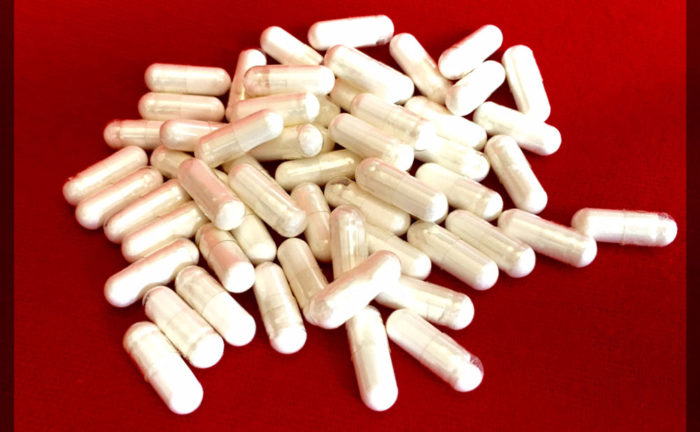
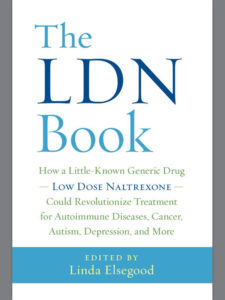 Editor Linda Elsegood’s harrowing personal story of illness and recovery provides the energetic springboard to rehabilitate Low Dose Naltrexone in “The LDN Book”.
Editor Linda Elsegood’s harrowing personal story of illness and recovery provides the energetic springboard to rehabilitate Low Dose Naltrexone in “The LDN Book”.
LDN is a modest, cheap drug, still much misunderstood and even maligned, and this explains the need for such a patient-led initiative, essentially to educate doctors, and qualifies my only potential criticism of the book, which is that the level of technical medical information about the drug is beyond what most lay-people will understand.
Elsegood has collected information on LDN from a varied selection of practitioners and experts from all around the world and for diverse conditions, with chapters on Multiple Sclerosis, Lupus, Crohns, CFS, Fibromyalgia, Thyroid disorders, Restless Leg Syndrome, Depression, Autism and Cancer.
Impressive Pedigree
The documented history and pharmacology in the book shows LDN’s impressive pedigree as an opiate antagonist. Naloxone, a precursor to LDN’s better known big brother Naltrexone, was even helpful in the discovery of opiate receptors in the human body leading to a historic explosion of understanding.
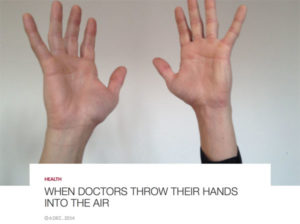 After Bernard Bihari’s “ingenious step” of using of Naltrexone in a low dose (LDN) in the treatment of HIV/AIDS in 1985, further research the following year by Zagon and McLaughlin led to the discovery that opiate receptors are present in multiple types of immune cells, leading to the impressive results achieved by use of LDN in so many auto-immune diseases.
After Bernard Bihari’s “ingenious step” of using of Naltrexone in a low dose (LDN) in the treatment of HIV/AIDS in 1985, further research the following year by Zagon and McLaughlin led to the discovery that opiate receptors are present in multiple types of immune cells, leading to the impressive results achieved by use of LDN in so many auto-immune diseases.
Regular visitors to ANM will know that I’ve been a vocal advocate for Low Dose Naltrexone since 2011, when our family tried hard to obtain it for my mother who was dying of lung cancer and the information in “The LDN Book” certainly vindicates those efforts.
David and Goliath
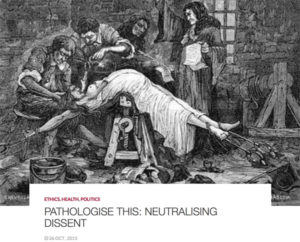 It is hard to overstate the abysmal lack of understanding of off-label prescribing among doctors. The number of anecdotal reports of physician hostility to prescribing this drug is still far too high, and often in spite of having personally heard anecdotal stories of the wondrous things it can achieve: one doctor even perpetrated a dangerous mental health smear because of it.
It is hard to overstate the abysmal lack of understanding of off-label prescribing among doctors. The number of anecdotal reports of physician hostility to prescribing this drug is still far too high, and often in spite of having personally heard anecdotal stories of the wondrous things it can achieve: one doctor even perpetrated a dangerous mental health smear because of it.
Meanwhile, in “The LDN Book” the chapter on cancer is written by Angus Dalgleish, the very consultant whose work on LDN my mother’s GP quoted in the anecdotal accounts of tumour shrinkage she mentioned, almost in the same breath as refusing to support the medicine.
I was recently asked if I did not feel bitter, given our awful experience, that LDN is now coming up and people are beginning to acknowledge that it is safe cheap non-toxic drug with many uses, including in cancer treatment, and my answer is no: I still hear so many stories of doctors unnecessarily refusing to prescribe LDN that I can only hope that the drug swiftly achieves its proper recognition and that other people’s mothers survive.
The Battle for Bodies
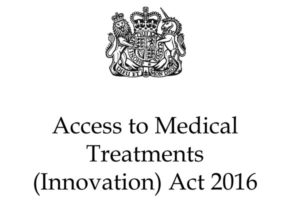 Seeing the bigger picture, however, certainly doesn’t imply acceptance of that kind of medical doublespeak, sabotaging the development of patient/doctor team work.
Seeing the bigger picture, however, certainly doesn’t imply acceptance of that kind of medical doublespeak, sabotaging the development of patient/doctor team work.
In fact since the arrival of the Access to Medical Treatments Act in March, there is no further excuse for the horror shown by doctors when LDN is mentioned, licensed or not.
Yet the forces of paternalism don’t give up and having unreasonably denied any such legal fears of off-label prescribing during the Bill’s passage, now seek to reverse the evolution of true patient power by putting it about that they succeeded in defeating the Bill, because it changed its name half way through Parliament.
However transparent and facile, such artful deceptions are antithetical to the generous culture that has produced “The LDN Book” while, perhaps helpfully, highlighting the raging medico-political landscape that has caused the need for it.
On the plus side, therefore, this sorry state of affairs renders LDN not just a bit of a miracle drug, but also a potentially rich seam of study for the betterment of the patient/Dr relationship.
High Stakes
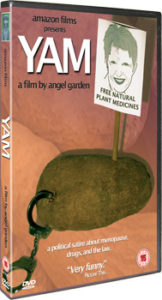 What is certain is that at some point LDN will come in from the cold, and become subject to establishment market forces and the prediction in the book is for LDN to be licensed within five years.
What is certain is that at some point LDN will come in from the cold, and become subject to establishment market forces and the prediction in the book is for LDN to be licensed within five years.
We all know by now that it’s hard to persuade Pharma to shell out for expensive trials to get a licence for cheap drugs (a theme explored in the comedy feature “YAM“) and it therefore remains an open question as to what will happen as the drug’s amazing, but not yet fully discovered, properties gain mainstream traction.
Whoever does the trials and eventually patents LDN will almost certainly greatly increase the price of a drug which right now only costs about £1 per day.
Come to think of it, perhaps the groundswell of support for LDN could be mobilised into achieving a “patient patent” to ensure proportionality. One can but dream…
How to Promote LDN
In the meantime we can celebrate the fact that whatever patient/doctor fault-line LDN has been hitting over many years has now resulted in a patient-led initiative to provide a technically informative book, mainly for doctors; that’s not a criticism but a shout out to people power and Linda Elsegood deserves hearty congratulations.
If you have any of the conditions listed at the beginning of this review, talk to your doctor about LDN and if they throw their hands up in the air, or start trying to tell you that’s crazy, or even that you are, consider pointing them to “The LDN Book”.
You could even gift it to your local GP surgery, to remind them that times are changing and that teamwork with patients requires that they improve their education, and keep up.
"Yam", Access to Medical Treatments Act, Access to Medical Treatments Bill, Amazon News Media, Big Pharma, featured, LDN, Linda Elsegood, Low Dose Naltrexone, Saatchi Bill, The LDN Book
My NHS doctor was told she couldn’t prescribe it by the Welsh prescribing authority. Yes she showed me the letter. She is a truly fabulous doctor who has always been unfailingly supportive. I have used LDN successfully for over 13 years. It works for me and hundreds of others, actually 1000’s!!!